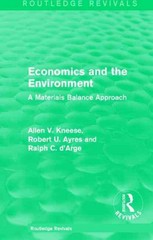Question
Below there are answers to select from. They are in bold The Permanent Income Hypothesis, Expectations, and the Incentive to Lie. Policy makers frequently want
Below there are answers to select from. They are in bold
The Permanent Income Hypothesis, Expectations, and the Incentive to Lie.
Policy makers frequently want to change people's behavior. Specifically, during a recession or running up to an election, policy makers frequently want to increase aggregate demand by increasing individual consumption. One way of doing this is by manipulating people's expectations about the future, i.e. manipulating Permanent Income.
This can be shown using the Intertemporal Budget Constraint.
There are 2 ways of doing this:
- If policy makers can make people believe their incomes will increase in the future, they will spend more today causing a short-term blip in GDP.
- If policy makers can make people believe a current increase in income is permanent rather than temporary, they can cause a bigger increase in current consumption and GDP.
Both ways are attempts to manipulate people's Permanent Income, i.e. the expectations a person has about how much income they will earn over their lifetimes.
Consider the following scenario:
The government announces a tax cut that will occur in future, e.g. after an election is won. What effect will this have on the person's intertemporal budget constraint if the person believes the current government will get reelected and will follow through on the promised tax cut.
Before the announced tax cut, the person earns $50K today and expects to earn $50K in the future. This is depicted as [ Select ] ["A", "B", "C", "D"] on the graph.
The Permanent Income Hypothesis posits that people prefer even flows of consumption over time. Given his current and expected income the person will [ Select ] ["borrow", "save"]to achieve an even flow of consumption over time.
The government announces they will lower taxes in the future. If the person believes the government, the person's endowment will move from [ Select ] ["A to B", "A to C", "A to D"] .
Even though the person's current income has not changed, their current consumption will [ Select ] ["increase", "decrease"]as the person [ Select ] ["borrows", "lends"]to even out their consumption over time.
Evening out consumption, the person will move from [ Select ]["B to C", "B to D"] .
By promising to lower taxes in the future, the government [ Select ] ["has", "has not"]achieved it's goal of manipulating people's expectations about the future to change their behavior today.
If the goal was to achieve a short term upward blip in GDP/Aggregate Demand the government [ Select ] ["did not succeed", "succeeded"] succeeded did not succeed.
The problem with this scenario is that people are not stupid. Macroeconomists say that people haveRational Expectations. Running up to an election, people realize the current government would like to create a short term upward blip in GDP to improve their chances in the upcoming election. When the government announces a future tax cut they discount the chances the tax cut will ever occur.
If people have Rational Expectations, the announced future tax cut will move the person's endowment from [ Select ] ["A to B", "A to C", "A to D", "A to A (no movement)"] .
If people have Rational Expectations, the announced future tax cut [ Select ] ["will", "will not"]cause a short term upward blip in GDP/Aggregate Demand.

Step by Step Solution
There are 3 Steps involved in it
Step: 1

Get Instant Access to Expert-Tailored Solutions
See step-by-step solutions with expert insights and AI powered tools for academic success
Step: 2

Step: 3

Ace Your Homework with AI
Get the answers you need in no time with our AI-driven, step-by-step assistance
Get Started


